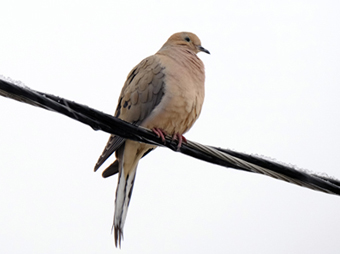Thoreau-ly Engaged
April 1st, 2025
“The mass of men lead lives of quiet desperation. What is called resignation is confirmed desperation. From the desperate city you go into the desperate country, and have to console yourself with the bravery of minks and muskrats.” ~ Henry David Thoreau
I have turned off the telly and escaped to my backyard bunker, from which I’m able to observe a variety of wildlife, not a single one of which gives a crap about Donald Trump, nor the curious creature that nests atop his rapidly balding head. Yesterday was sunny, this morning it snowed. I spotted a raccoon’s track, but no raccoon. The robin and goldfinch have taken cover; the mourning doves and fox squirrels have not. They are very well equipped to deal with inclement weather!




-Richard Menzies
« previous